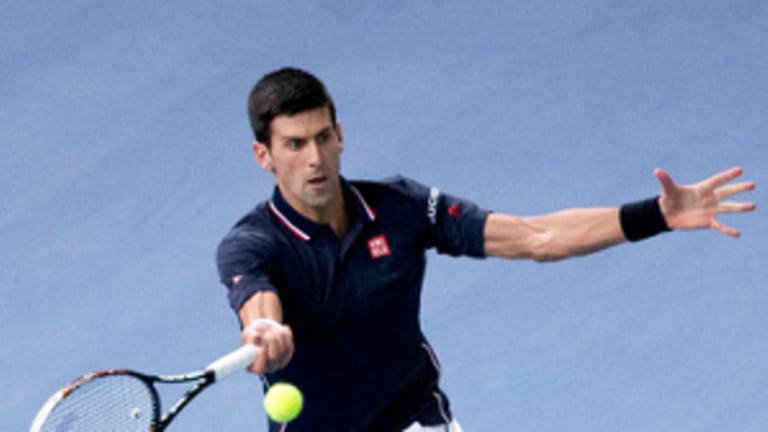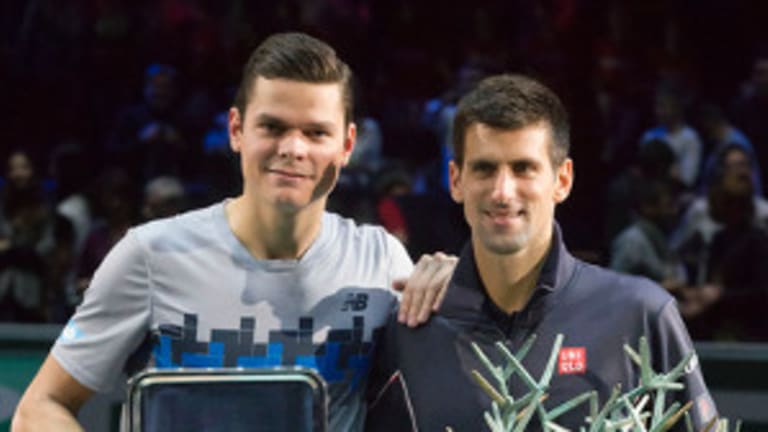With the benefit of hindsight, it should seem obvious now that Novak Djokovic would win his third Paris Masters title over the weekend. That’s not because the signs looked good for him at the start of the event. If anything, they pointed in the opposite direction.
Coming to Bercy, Djokovic had won just one tournament since Wimbledon, and had nearly ceded the No. 1 ranking, which he had held since July, to Roger Federer. Djokovic had also spent the previous week witnessing the birth of his first child, Stefan. After his last personal milestone, his wedding this summer, Nole had been a lost soul for the next month on court. Would we see a similar swoon from him to end the year? As Bercy began, Djokovic himself almost sounded prepared for one. He claimed that, no matter what happened on court, having his son made him feel like he had already finished at the top.
Naturally, after all of that, Djokovic won Paris without dropping a set. He won his 600th match and 20th Masters title, and he re-extended his lead over Federer in the race for No. 1. Along the way, he cooled off the hottest player in tennis, Andy Murray, survived the home-court showman, Gael Monfils, on his favorite stage, and knocked the best of the next generation, Kei Nishikori and Milos Raonic, back a step in the semis and final.
“I see it better now than one week ago, that’s for sure,” Djokovic said of his quest for No. 1. “It helps that I won the title in Bercy, that I’m playing well, and that I’m feeling good about myself on the court playing indoors. That encourages me.”
So all is once again well in the world of Nole, for this week at least. It has been that kind of up-and-down season for him. Every time he has looked ready to roll over the competition and take control of the tour again, he has stumbled. Every time he has looked down and out, he’s bounced right back onto his feet again.
“I played the best match of the entire week today when it was most needed,” Djokovic said of his 6-2, 6-3 win over Raonic in the final. “I got a lot of returns back and just overall I'm extremely happy with the performance.”

